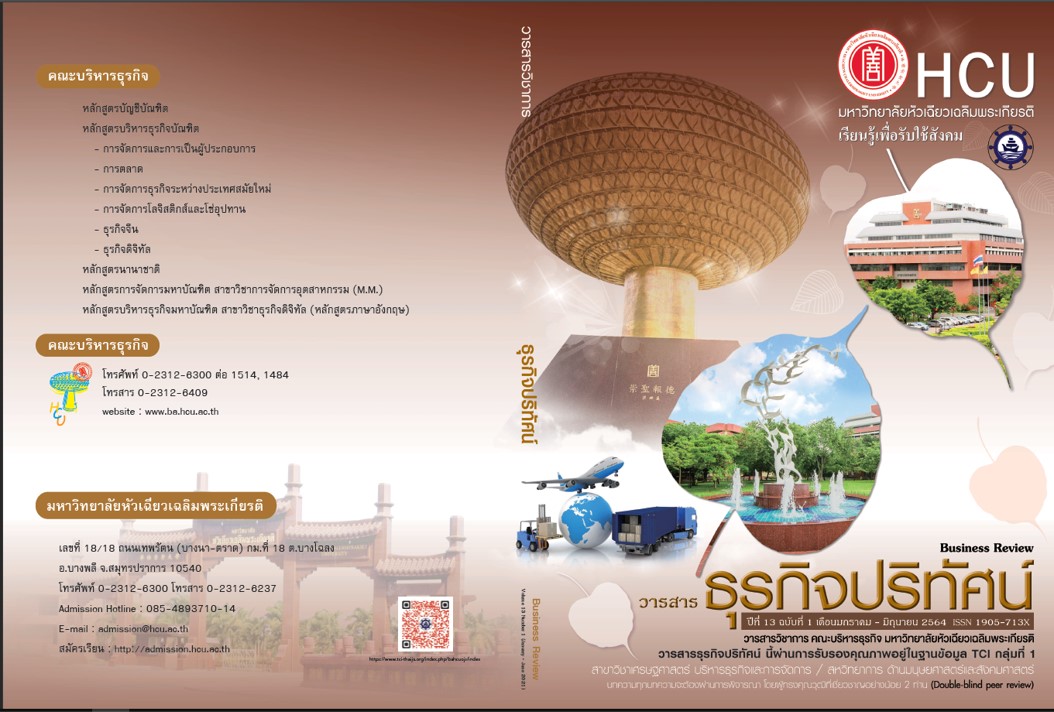Service Quality Assessment to Customer Satisfaction in Container Terminal
Keywords:
Service Quality Assessment, Container Terminal, Customer Satisfaction, SERVQUAL TheoryAbstract
The aim of the present study is to present the service quality of the container terminal by comparing expectations (E) and perceptions (P) in the perspective of customers. To improve the service quality of container terminal by using SERVQUAL model and t-test, questionnaire is a tools for collecting data from 100 customers who obtain container terminal service. The present study explores that customers are more satisfied with Tangible factors than others. Only Tangible factor (0.17) shows positive score, perceptions (P) of the service more than expectations (E). However, the service quality includes Responsiveness (-0.25), Reliability (-0.31), Assurance (-0.36) and Empathy (-0.53) should be improved. The Tangible service shows significantly different at .05 level. Both of the average of perceptions (P) and expectations (E) score in the service quality of the container terminal perform at a high level. But some factors need to be improved to increase customer satisfaction.
References
ฐาปณี ยืนนาน. (2561). ศักยภาพในการปรับตัวของผู้ประกอบการโลจิสติกส์เพื่อรองรับ โครงการพัฒนาระเบียงเขตเศรษฐกิจพิเศษภาคตะวันออก. วารสารบริหารธุรกิจและสังคมศาสตร์ มหาวิทยาลัยรามคําแหง, 1(3), 52–61.
ทวีศักดิ์ เทพพิทักษ์. (2559). การพัฒนาคุณภาพการให้บริการของท่าเทียบเรือแหลมฉบัง กับการเพิ่มขีดความสามารถในการแข่งขันให้กับอุตสาหกรรม พาณิชยนาวีไทยรองรับประชาคมอาเซียน. วารสารวิทยาการจัดการ มหาวิทยาลัยราชภัฏเชียงราย, 11(1), 17–46.
บุญชม ศรีสะอาด. (2545). การวิจัยเบื้องต้น. วารสารการวัดผลการศึกษามหาวิทยาลัยศรีนครินทรวิโรฒ, 3(1), 22–25.
พีระพงษ์ เอื้อสุนทรวัฒนา และคณะ. (2561). สำรวจความต้องการของสถานประกอบการวิสาหกิจขนาดกลางและขนาดย่อมในจังหวัดสมุทรปราการด้านการศึกษาและฝึกอบรม. วารสาร ธุรกิจปริทัศน์, 10(1), 157–176.
ภวัต วรรณพิณ. (2554). การประเมินคุณภาพการบริการของร้าน True Coffee สาขาในมหาวิทยาลัย Quality. ปริญญาบริหารบริหารธุรกิจมหาบัณฑิต บัณฑิตวิทยาลัย มหาวิทยาลัยกรุงเทพ.
วาสนา แพทยานนท์. (2550). ความพึงพอใจของผู้ใช้บริการของท่าเรือแห่งประเทศไทย กรณีศึกษา ท่าเรือแหลมฉบัง. ปริญญาบริหารธุรกิจมหาบัณฑิต, จุฬาลงกรณ์มหาวิทยาลัย.
อนุสรา มีเรือง และคณะ. (2561). อิทธิพลของคุณภาพการให้บริการต่อการใช้งาน ความพึงพอใจ และประโยชน์สุทธิของ ผู้ใช้งานระบบบริหารจัดการลานตู้ของการท่าเรือกรุงเทพ. วารสารวิชาการมหาวิทยาลัยธนบุรี, 12(4), 226–236.
อารีฟ อาหามะ และ ชิณโสณ์ วิสิฐนิธิกิจา. (2559). คุณภาพการให้บริการของโรงพักสินค้าของการท่าเรือแห่งประเทศไทย. วารสารบัณฑิตศึกษา มหาวิทยาลัยราชภัฏสวนสุนันทา, 2(2), 98–99.
Chinonye, U., Callistus, I., & Ogwude, I. C. (2004). Service quality measurements in ports of a developing economy: Nigerian ports survey. Managing Service Quality: An International Journal, 14(6), 487–495.
Crosby, P. B. (1988). Quality is Free. NewYork: McGraw-Hill.
Myung-ShinHa. (2003). A comparison of service quality at major container ports: implications for Korean ports. Journal of Transport Geography, 11(2), 131–137.
Parasuraman, A., Zeithaml, V., & Berry, L. (1988). SERVQUAL: a multi-item scale for measuring consumer perception of service quality. Journal of Retailing, 1(64), 12–40.
Shoosnuk, A., Boonmanumsin, P., & Shoosanuk, C. (2016). Influences of System Quality on the Vessel & Cargo Management System (VCMS) Usage, User Satisfaction and User’s Net Benefit of Port Authority. Suranaree Journal, 10(2), 119–136.
Theppitak, T. (2010). Applying Concept of Gap Analysis to Customer Satisfaction for Bangkok Ports, Thailand. Journal of Graduate School of Commerce Burapha Review, 4(2), 25–39.
Yeo, G. T., Roe, M., & Dinwoodle, J. (2008). Evaluating the competitiveness of container ports in Korea and China. Transportation Research Part A: Policy and Practice, 42(6), 910–921.
Yeo, G. T., Thai, V. V., & Roh, S. Y. (2015). An Analysis of Port Service Quality and Customer Satisfaction: The Case of Korean Container Ports. Asian Journal of Shipping and Logistics, 31(4), 437–447.
Downloads
Published
How to Cite
Issue
Section
License
All articles published in the Business Administration and Management Journal Review are copyrighted by the journal.
The views and opinions expressed in each article are solely those of the individual authors and do not represent those of Huachiew Chalermprakiet University or any other faculty members. Each author is fully responsible for the content of their own article. Any errors or issues found are the sole responsibility of the respective author.




